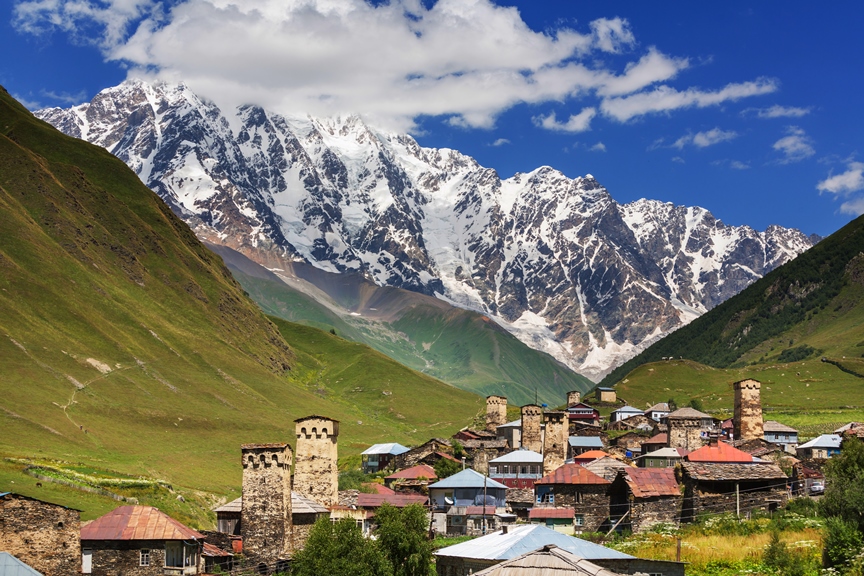

Additional Information: Programme of the Conference UNWTO Global Code of Ethics Webportal of the International Year of Sustainable Tourism for Development
The Waikato Tourism Monitoring Observatory, New Zealand’s first tourism observatory, has joined the World Tourism Organization (UNWTO) International Network of Sustainable Tourism Observatories (INSTO). Committed to regular and timely measurement of tourism and its impacts and hosted by the University of Waikato Management School, the observatory is focused on two major tourist locations in Waikato region – Raglan and Waitomo.
“New Zealand is an example of tourism sustainability and thus the incorporation of the Waikato Observatory to the UNWTO INSTO Network adds immense value to this global initiative,” said UNWTO Secretary-General Taleb Rifai.
“The Waikato Tourism Monitoring Observatory is a wonderful initiative that will provide valuable data over time to support the tourism sector to maximize its contribution to the economy, while ensuring our visitors enjoy high-quality experiences,” said Paula Bennett, Deputy Prime Minister and Minister of Tourism of New Zealand.
New Zealand’s tourism sector is experiencing continuous growth and therefore requires an adequate measurement of tourism impacts. This observatory is crucial to providing tangible evidence for well-informed decision making in sustainable tourism development-related themes.
The Waikato Observatory seeks to support the strengthening of the world famous surfing town Raglan as a sustainable destination, while continuing to protect the unique landscapes and the biodiversity of Waitomo and its iconic tourist attraction the Waitomo Caves. Overall, the Waikato region received 357,000 visitors in 2015, most of whom were domestic visitors (approx. 200,000).
Due to an already existing strong sense of community and engagement of its members especially in the more mature seaside tourism town Raglan, the observatory will start with focusing its monitoring efforts on crucial socio-cultural aspects such as ‘local and visitor satisfaction’. Additional areas encompass ‘destination economic benefits’, ‘tourism seasonality’ and ‘development control’ in the short term, extending in the long-term to measurement activities related to waste management, housing issues, water supply, sewage management, among others.
INSTO is a network of tourism observatories monitoring the economic, environmental and social impact of tourism at the destination level, committed to regular monitoring of tourism in order to better understand destination-wide resource use and foster responsible tourism management. There are currently 18 observatories in operation worldwide.

The potential of mountain tourism: focus of UNWTO Conference in Georgia
The potential of mountain tourism to foster economic development, as well as to raise awareness on environmental protection, was the major topic addressed at the 3rd World Tourism Organization (UNWTO) Euro-Asian Mountain Resorts Conference. The event was held in Tbilisi, Georgia on 4-7 April, under the patronage of the Ministries of Tourism and of Economy and Sustainable Development of Georgia.
More than 300 participants from 32 countries gathered for the conference.
Opening the event, Prime Minister of Georgia Giorgi Kvirikashvili said: “It is significant to note that mountains make up more than 65% of the country’s landscape, and the government has been active in effectively using the aforementioned resource and advancing opportunities in tourism. According to various studies, Georgian ski destinations have the potential to generate more than 300 million US dollars in revenues from visitors. In this light, the Government of Georgia has focused considerable financial resources on sustainable development of the country’s mountain destinations, including implementation of major infrastructural projects.”
“Besides its economic potential for remote areas and isolated regions, mountain tourism is a key catalyst to raise awareness on sustainable tourism and to help us become more committed travelers, institutions and enterprises, a challenge especially pertinent at the present moment as we are celebrating the International Year of Sustainable Tourism for Development,” said Taleb Rifai, UNWTO Secretary-General.
The conference was structured around five key sessions conducted by 25 international speakers from 17 countries:
1. Sustainable tourism in mountain destinations: challenges and long-term outlook
2. Mountain resort planning: an integrated planning approach and illustration of good practices in developing mountain destinations
3. Investment and incentive policies: legislative framework and investment-friendly practices
4. Product diversification and attracting new markets: a strategic approach to improve the positioning of mountain destinations
5. New revolutionary tools for mountain destinations: innovation and the digital media
Prior to the conference, eight companies and associations joined the Private Sector Commitment to the UNWTO Global Code of Ethics for Tourism: Adjara Group Hospitality; Caucasus Travel; Explore Georgia; Georgian Events, Georgian Incoming Tour Operators Association; Georgian Tourism Association (GTA); Living Roots; and Tourist Agency ‘VisitGeorgia’.
On the occasion, UNWTO Secretary-General Rifai was awarded the Order of Honor by Prime Minister Kvirikashvili for his contribution to the development of tourism in Georgia, for strengthening the relationship between UNWTO and Georgia, and for raising awareness about Georgia as a tourism destination internationally.
Additional Information:
Webportal of the International Year of Sustainable Tourism for Development
